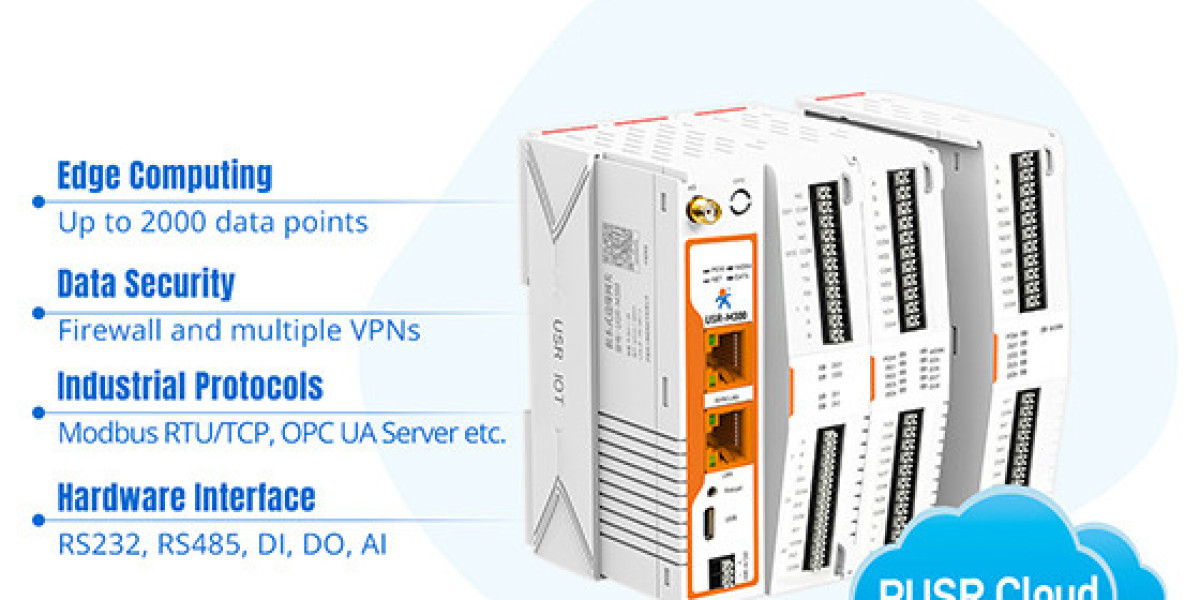In today’s industrial environment, communication between machines, devices, and control systems is critical for efficiency and reliability. From manufacturing lines to power plants, industries need real-time data transfer to ensure smooth operations. Serial device servers and industrial gateways play a vital role in connecting traditional equipment to modern networks, enabling smarter operations and seamless integration.
What Is a Serial Device Server?
A serial device server is a device that allows traditional serial equipment to communicate over a network. Many industrial machines, sensors, and controllers still rely on RS-232, RS-422, or RS-485 serial connections. A serial device server converts these signals into TCP/IP or Ethernet-compatible data, allowing remote monitoring and control over local or wide-area networks.
Key Benefits of Serial Device Servers:
Connect multiple serial devices to one network
Enable remote monitoring and control
Reduce the need for complex wiring
Ensure reliable data transfer in industrial environments
Understanding Industrial Gateways
An industrial gateway is a device that enables communication between different types of industrial networks or protocols. For example, it can link Modbus devices with OPC, PROFIBUS systems, or Ethernet/IP networks. Industrial gateways are essential in connecting legacy machinery with modern IoT platforms, making it possible to adopt smart manufacturing techniques without replacing existing equipment.
Key Advantages of Industrial Gateways:
Translate communication protocols between devices
Collect and transmit data in real-time
Enable integration with cloud-based monitoring systems
Support automation and predictive maintenance
How They Work Together
In modern factories, you often find a mix of old and new equipment. Serial device servers convert the traditional serial data into network-friendly formats, while industrial gateways manage protocol translation and data integration. Together, they:
Allow legacy machines to communicate with modern networks
Facilitate remote monitoring and control of devices
Improve operational efficiency and reduce downtime
Provide data for analytics, maintenance, and process optimisation
Applications Across Industries
1. Manufacturing
Serial device servers and industrial gateway connect machinery, conveyor belts, and sensors to central control systems, ensuring smooth production workflows.
2. Energy and Utilities
In power plants and water treatment facilities, these devices enable real-time monitoring of equipment and energy usage, improving efficiency and reducing operational risks.
3. Transportation and Logistics
Industrial gateways help manage rail systems, ports, and airports by providing real-time tracking, inventory management, and automated communication between systems.
4. Building Automation
HVAC, security systems, lighting, and other smart building devices are connected through gateways, improving energy management and security.
Advantages of Serial Device Servers
Integration of Legacy Devices: Connect older machinery to modern network systems without replacements
Remote Access: Monitor and control devices from anywhere
Cost Savings: Reduces the need for extensive cabling and wiring
Reliable Operation: Designed for industrial environments with high durability
Advantages of Industrial Gateways
Protocol Conversion: Bridge different industrial communication standards
IoT Compatibility: Enable smart factories and cloud integration
Secure Networking: Protect sensitive industrial data
Scalability: Easily expand networks as operations grow
Choosing the Right Devices
When selecting serial device servers or industrial gateways, consider:
Number of serial ports or device connections required
Supported communication protocols
Data speed and network reliability
Security features like encryption and authentication
Industrial-grade durability for harsh environments
Future of Industrial Connectivity
The industrial sector is evolving rapidly with Industry 4.0 technologies. Real-time monitoring, predictive maintenance, and smart manufacturing require seamless connectivity. Serial device servers and industrial gateways ensure that legacy equipment remains functional and integrated within modern digital ecosystems. Key trends include:
Integration with cloud platforms for analytics
Enhanced security features to prevent cyber threats
Wireless connectivity for remote operations
Support for advanced automation and AI-powered monitoring
Conclusion
As industries embrace digital transformation, the importance of serial device servers and industrial gateways cannot be overstated. They bridge the gap between traditional equipment and modern network systems, enabling real-time monitoring, process automation, and data-driven decision-making. Investing in these devices ensures smooth operations, reduces downtime, and prepares industrial facilities for the future of smart manufacturing.
See more article click here.








